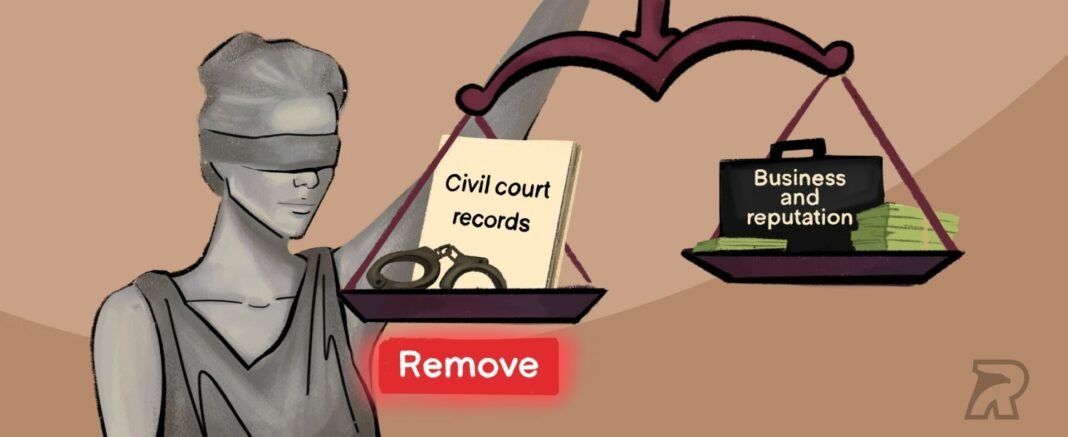Ever wondered what goes on behind the scenes at your local county clerk’s office? Well, if you live in Sangamon County, you’re in for a treat. The Sangamon County Clerk’s office is a hub of activity, particularly when it comes to court records. But why are these records so important, and how can you access them? Let’s dive in.
What Are Court Records?
Court records are like a diary of the legal system, documenting every twist and turn of the cases that pass through the courts. They include everything from criminal trials to civil disputes and probate matters. These records matter because they provide transparency, ensure accountability, and help uphold the rule of law.
Role of the Sangamon County Clerk
The Sangamon County Clerk plays a crucial role in maintaining these records. Think of the clerk as the librarian of the legal world, responsible for organizing, storing, and providing access to court records. The clerk’s duties include ensuring the accuracy of records, managing public access, and preserving historical documents.
Accessing Sangamon County Court Records
So, how do you get your hands on these records? You have two main options: online access and in-person access.
Online Access to Court Records
Navigating the Sangamon County Clerk’s website is your first step towards accessing court records online. The website is designed to be user-friendly, making it easy to search for and obtain the records you need.
Steps to Access Records Online
- Visit the Sangamon County Clerk’s website.
- Navigate to the court records section.
- Use the search function to find the specific records you’re looking for.
- Follow the prompts to view or download the records.
In-Person Access to Court Records
If you prefer a more hands-on approach, you can visit the clerk’s office in person.
Location and Office Hours
The Sangamon County Clerk’s office is located at [insert address here]. They are open from [insert hours here] on weekdays.
What to Bring When Visiting
When visiting in person, make sure to bring a valid ID and any relevant case information to expedite the process.
Types of Court Records Available
The Sangamon County Clerk’s office holds various types of court records, each serving a different purpose.
Criminal Court Records
These records detail the proceedings of criminal cases, including charges, trial dates, and verdicts.
Civil Court Records
Civil court records cover non-criminal disputes, such as lawsuits, divorces, and custody battles.
Probate Court Records
Probate records involve the administration of estates, wills, and trusts.
How to Request Court Records
Requesting court records is straightforward, whether you do it online or in person.
Online Request Process
- Access the Sangamon County Clerk’s website.
- Navigate to the request form.
- Fill in the necessary details and submit your request.
- Pay any associated fees online.
In-Person Request Process
- Visit the Sangamon County Clerk’s office.
- Fill out a request form at the counter.
- Submit the form along with any required fees.
Fees Associated with Court Records
While some records may be free to view, others come with a fee.
Breakdown of Costs
Fees can vary depending on the type of record and the method of access. It’s best to check the Sangamon County Clerk’s website for the most current fee schedule.
Payment Methods Accepted
The clerk’s office typically accepts cash, checks, and credit/debit cards.
Privacy and Court Records
Not all court records are open to the public. Privacy laws ensure that sensitive information remains confidential.
What Information is Public?
Most case information, such as the names of parties and the case outcome, is public.
What Information is Confidential?
Details that could jeopardize someone’s safety or privacy, such as addresses or social security numbers, are kept confidential.
Using Court Records for Legal Purposes
Court records are invaluable for legal professionals and individuals alike.
How Lawyers Use Court Records
Lawyers use court records to research case law, prepare for trials, and build their cases.
How Individuals Can Use Court Records
Individuals might use court records to check the status of a case, gather evidence for their own legal matters, or simply to stay informed about legal proceedings.
Common Issues and Solutions
Accessing court records isn’t always smooth sailing. Here are some common issues and how to solve them.
Troubleshooting Online Access
If you’re having trouble accessing records online, check your internet connection, ensure you’re using a compatible browser, or contact the clerk’s office for assistance.
Resolving In-Person Access Issues
For in-person issues, double-check the office hours, ensure you have all necessary documents, and be prepared for potential wait times.
Importance of Accurate Court Records
Accurate court records are the backbone of the legal system. They ensure fair and just legal proceedings and provide a reliable historical record.
Impact on Legal Proceedings
Inaccurate records can lead to legal errors, delays, and miscarriages of justice.
Importance for Historical Research
Court records are also a treasure trove for historians, providing insights into past legal cases and societal trends.
Future of Court Records in Sangamon County
The future looks bright for court records in Sangamon County, with technological advances leading the way.
Technological Advances
Digital records and online databases are making it easier than ever to access court records from anywhere.
Potential Changes in Access
As technology evolves, so too will the methods of accessing court records, potentially leading to faster and more efficient processes.
Conclusion
Sangamon County Clerk court records are a vital resource for legal professionals, researchers, and the general public. Whether you’re accessing them online or in person, understanding how to navigate the system can save you time and effort. Keep these tips in mind, and you’ll be a court records pro in no time.




